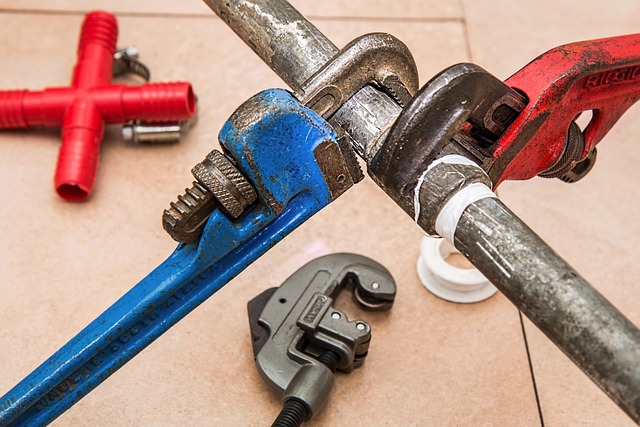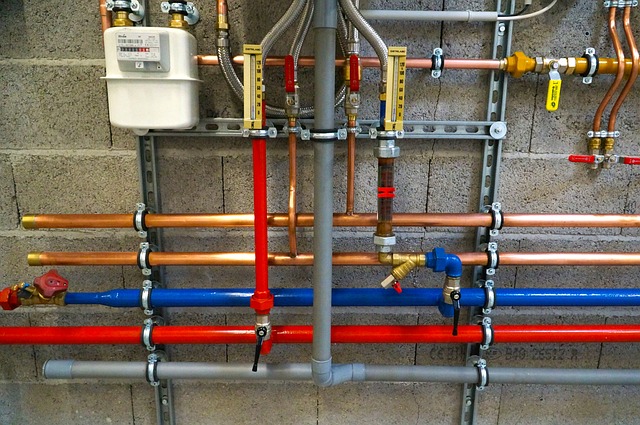Plumbing technologies have evolved significantly, focusing on energy efficiency with smart water detectors, tankless heaters, advanced water filtration, and trenchless repairs. Smart water detectors monitor usage, detect leaks promptly, and conserve water, while tankless heaters provide on-demand hot water, reducing energy waste. Water filtration systems improve quality, easing strain on treatment plants. Trenchless repairs minimize excavation, and digital controls offer precise temperature regulation, optimizing energy use across residential and commercial spaces, promoting sustainability, and saving costs.
In today’s quest for energy efficiency, the realm of plumbing offers untapped potential. Smart plumbing solutions are revolutionizing how we manage water, reducing consumption and energy costs. From advanced plumbing technologies to innovative devices like smart water detectors and tankless heaters, this article explores modern approaches to sustainable practices in plumbing. We delve into digital controls, water filtration, and trenchless repairs, providing a comprehensive guide to eco-friendly options that are transforming the way we interact with our most vital resource.
- Plumbing Technologies for Energy Efficiency: A Modern Approach
- Smart Water Detectors and Tankless Heaters: Reducing Energy Consumption
- Digital Controls, Water Filtration, and Trenchless Repairs: Sustainable Practices in Plumbing
Plumbing Technologies for Energy Efficiency: A Modern Approach

Plumbing technologies have evolved significantly, offering modern approaches to enhance energy efficiency in homes and buildings. One such innovation is the integration of smart water detectors, which can monitor water usage patterns and detect leaks promptly. These advanced systems not only conserve water but also minimize energy waste by preventing unnecessary heating or cooling of water. Tankless heaters are another game-changer, providing on-demand hot water without the need for storage tanks. This technology ensures efficient water heating, reducing energy consumption and saving costs.
Additionally, water filtration systems play a crucial role in energy efficiency. By improving water quality, these filters reduce the strain on water treatment plants and pumping systems, leading to lower energy demands. Trenchless repairs are also gaining popularity as they minimize excavation and reduce water disruption during maintenance. Digital controls further enhance this process by allowing precise temperature regulation and automated scheduling, ensuring optimal energy use.
Smart Water Detectors and Tankless Heaters: Reducing Energy Consumption

Smart plumbing technologies like smart water detectors and tankless heaters are revolutionizing energy efficiency in homes and businesses. These innovative solutions help reduce energy consumption significantly by eliminating standby power losses associated with traditional water heating systems. Smart water detectors, equipped with digital controls and water filtration systems, can monitor water usage patterns and alert users to potential leaks or excessive flow, enabling prompt action to prevent waste.
Tankless heaters, also known as on-demand water heaters, heat water only when it’s needed, eliminating the energy required to keep a tank of water hot all the time. This not only reduces electricity bills but also minimizes environmental impact. Combining these smart plumbing technologies with trenchless repairs—a non-invasive method for fixing pipes—offers further benefits in terms of cost savings and reduced disruption to buildings and landscapes.
Digital Controls, Water Filtration, and Trenchless Repairs: Sustainable Practices in Plumbing

In today’s digital era, plumbing technologies have evolved to incorporate smart water detectors and digital controls, significantly enhancing energy efficiency in homes and buildings. These innovations allow for precise monitoring and management of water usage, ensuring that every drop is utilized optimally. For instance, smart water detectors can automatically shut off water supplies when leaks or overflows are detected, preventing wastage and reducing energy consumption associated with heating or cooling stale water. This not only saves costs but also contributes to a more sustainable environment.
Additionally, the adoption of water filtration systems and trenchless repairs further underscores the commitment to sustainable practices in plumbing. Tankless heaters, for example, offer on-demand hot water, eliminating the energy required to keep a tank heated at all times. Trenchless repairs, using advanced plumbing technologies, minimize excavation and disruption to landscapes, reducing construction waste and environmental impact. These practices are not just eco-friendly but also promote long-term cost savings for property owners by optimizing resource use and preventing costly damage from leaks or clogs.
